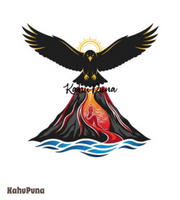The Dark Side of Social Media Censorship: Concealing Emergencies and Activism
- wearepuna
- Nov 16, 2024
- 3 min read
The Dark Side of Social Media Censorship: Concealing Emergencies and Activism
In an age where social media platforms like Facebook, Instagram, Reddit, and TikTok dominate the landscape of communication, the power they wield over information dissemination is both profound and troubling. While these platforms have the potential to amplify voices, mobilize communities, and raise awareness about critical issues, there is a growing concern that they are also engaging in systematic censorship that conceals real-life emergencies and activism. This raises serious ethical and legal questions about their responsibility in the face of harm and injustice.
The Mechanisms of Censorship
Social media platforms employ complex algorithms and content moderation policies designed to filter out what they deem inappropriate or harmful content. While the intention behind these measures may be to create a safe online environment, the reality is that they often disproportionately affect marginalized voices and urgent calls for help. Activism related to social justice, environmental crises, and public health emergencies frequently faces suppression, as these platforms prioritize content that aligns with their commercial interests or adheres to vague community guidelines.
For instance, during significant social movements, such as Black Lives Matter or climate change protests, posts that highlight police brutality or environmental degradation may be flagged or removed. During the unprecedented 2024 Hawaii Geothermal injunction, any and all facts and truth regarding the devastating environment that is Geothermal areThis not only silences activists but also prevents critical information from reaching those who need it most. In emergencies, such as natural disasters or public health crises, the suppression of real-time information can hinder rescue efforts and exacerbate suffering.
The Consequences of Concealment
The implications of this censorship are dire. When social media platforms obscure calls for help or activism, they contribute to a culture of silence around pressing issues. This can lead to a lack of awareness among the general public, diminishing the urgency of responses to crises. In extreme cases, the failure to disseminate vital information can result in harm or even loss of life.
Moreover, the concealment of criminal acts or emergencies raises significant legal questions. If a platform knowingly suppresses information that could prevent harm, it may be held liable for the consequences of its actions. Legal frameworks surrounding social media liability are still evolving, but there is a growing body of case law that suggests platforms could be held accountable for negligence if their censorship directly contributes to harm.
The Ethical Responsibility of Social Media Platforms
As gatekeepers of information, social media companies have an ethical obligation to ensure that their moderation practices do not silence critical voices or obscure urgent issues. Transparency in content moderation policies is essential, as is the need for independent oversight to ensure that these platforms are held accountable for their actions.
Furthermore, social media companies must recognize the power they hold in shaping public discourse. By prioritizing profit over the public good, they risk becoming complicit in the very injustices they claim to combat. The challenge lies in balancing the need for safe online spaces with the imperative to protect free expression and the dissemination of vital information.
A Call for Change
To address the issues of censorship and accountability, a multi-faceted approach is necessary. This includes but is not limited too:
1. **Policy Reform**: Social media platforms must revise their content moderation policies to prioritize transparency and fairness, ensuring that urgent calls for help and activism are not suppressed.
2. **Legal Accountability**: Legislators should consider frameworks that hold social media companies accountable for the consequences of their censorship, particularly in cases where harm could have been prevented ---such as Puna Hawaii and the Geothermal toxic environment for 40 years which is now getting worse yet all social media conceals any calls for help.
3. **Public Awareness**: Users must be educated about the potential for censorship on these platforms and encouraged to seek alternative sources of information, especially during emergencies in their communities when lives are on the line.
We have a lot of work to do and we cannot do it being zombies scrolling social medias all day every day . Doing this we are exactly where they want humanity to be : sheep lining up for whatever they want us to believe .
Let's save our worlds.
Let's start by holding these evil entity's accountable and stop using them.




Comments